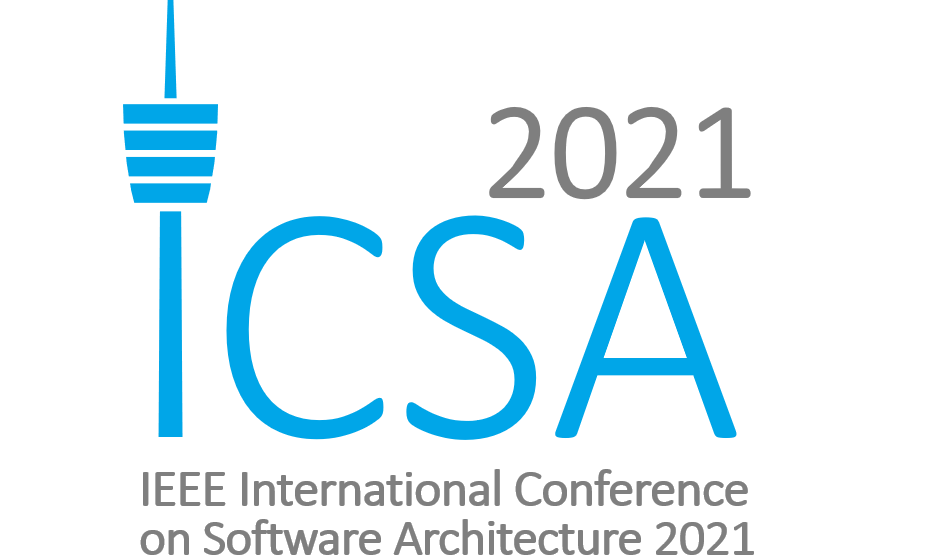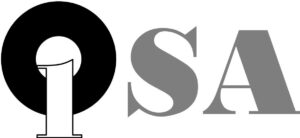Description & Purpose
Quantum computing is becoming real: Several vendors offer quantum computers in the cloud or on premise, companies invest to become familiar with this technology and its potentials, several software companies build corresponding tools, and consulting companies offer services to build solutions. Many applications will benefit from quantum technologies because a lot of intractable problems (in the sense of complexity classes) may realize up to exponential speedups on quantum computers.
However, software to be run on a quantum computer is quite different from software for classical computers. Thus, the current state of the art is that solutions are hand-crafted in an ad-hoc manner and a solid foundation for building and integrating quantum software is missing.
The goal of the QSA workshop is to bring together researchers and practitioners from different areas of quantum computing and (classical) software architecture to strengthen the quantum software community and discuss architectural styles and best practices of quantum software as well as other aspects of the quantum software development lifecycle.
The workshop offers a platform for the presentation of novel scientific ideas as well as practical experiences and enables the exchange with experts from different areas of quantum computing.
Keynote
Jay Gambetta, PhD (IBM Fellow & VP Quantum Computing, IBM), 15:00-16:00,
Title: “Quantum circuits, and the future of quantum technology in the cloud”
Topics of interest include (but not limited to):
- Hybrid Quantum Software
- Architecture styles of hybrid quantum-classical applications
- Architecture blueprints for hybrid quantum-classical applications
- Best practices and patterns for hybrid quantum-classical applications
- Integration and orchestration of quantum and classical components in hybrid applications
- Specification & verification of functional and non-functional requirements of hybrid applications
- Quantum Software Development
- Development Process for building quantum applications
- Lifecycle of quantum applications
- Programming languages for building quantum applications
- Data preparation and error mitigation techniques
- Testing of quantum applications
- KPIs and quality measures of quantum applications
- Best practices and patterns
- Quantum in the Cloud
- Quantum computing as a service
- Interoperability and portability of quantum software
- Deployment automation of (hybrid) quantum applications
- Quantum Applications
-
- Migration from proof-of-concept quantum software to production
- Scalability of quantum software (e.g. sensitivity of increasing qubits, gate fidelity,…)
- Migration between different quantum technologies
Submission
The QSA workshop invites authors to submit original and unpublished work. All papers must conform, at time of submission, to the IEEE Computer Science proceedings format. Papers can be submitted in the following categories:
- Full papers (max. 8 pages) presenting novel research ideas, significant empirical studies, or successful applications.
- Short papers (max. 4 pages) raising new ideas, challenges, ongoing research or early research results, and future trends.
Papers must be submitted electronically via EasyChair.
At least one author of each accepted paper is required to attend the workshop and present the paper. Presented papers will be published by IEEE CS Digital Library.
Registration
One author of each accepted paper must be registered as author (general admission as author). All others interested in attending the workshop can register as workshop attendee.
All information about the registration can be found here.
Important Dates
Abstract submission: January 15th, 2021 (optional)
Paper submission: January 20th, 2021
Paper notification: February 8th, 2021
Camera-Ready: February 15th, 2021
QSA will take place on March 22nd, 2021
Program
All times in this program are indicated in Central European Time (CET).
| 09:50 – 10:00 | Welcome and Introduction (Frank Leymann) | |
| 10:00 – 11:00 | Invited Talk
NISQ Software from Top to Bottom |
|
| 11:00 – 11:10 | Coffee Break | |
| 11:10 – 12:30 | Session 1 | |
| 11:10 – 11:50 | Manuela Weigold, Johanna Barzen, Frank Leymann and Marie Salm: Expanding Data Encoding Patterns For Quantum Algorithms. | |
| 11:50 – 12:30 | Tom Weber, Matthias Riebisch, Kerstin Borras, Karl Jansen and Dirk Krücker: Modelling for quantum error mitigation. | |
| 12:30 – 13:30 | Lunch Break | |
| 13:30 – 14:50 | Session 2 | |
| 13:30 – 14:10 | Gerhard Hellstern: Hybrid Quantum Network for classification of finance and MNIST data. | |
| 14:10 – 14:50 | Thien Nguyen, Lindsay Bassman, Dmitry Lyakh, Alexander McCaskey, Vicente Leyton-Ortega, Raphael Pooser, Wael Elwasif, Travis Humble and Wibe de Jong: Composable Programming of Hybrid Workflows for Quantum Simulation. | |
| 14:50 – 15:00 | Coffee Break | |
| 15:00 – 16:00 | Keynote
Quantum circuits, and the future of quantum technology in the cloud |
|
Workshop Chairs
- Johanna Barzen, Institute of Architecture of Application Systems, University of Stuttgart, Germany
- Sebastian Feld, Quantum & Computer Engineering Department, Delft University of Technology, The Netherlands
- Frank Leymann, Institute of Architecture of Application Systems, University of Stuttgart, Germany
- Karoline Wild, Institute of Architecture of Application Systems, University of Stuttgart, Germany
Workshop Program Committee Chairs
- Johanna Barzen, Institute of Architecture of Application Systems, University of Stuttgart, Germany
- Sebastian Feld, Quantum & Computer Engineering Department, Delft University of Technology, The Netherlands
Workshop Program Committee
- Marco Aiello, University of Stuttgart, Germany
- Carmen G. Almudever, Delft University of Technology, Netherlands
- Imran Ahsraf, HITEC University, Pakistan
- Christian Decker, University of Applied Sciences Reutlingen, Germany
- Schahram Dustdar, Vienna University of Technology, Austria
- Faisal Shah Khan, Dark Star Quantum Computing Lab, USA
- Tim Leonhardt, Accenture, Germany
- Kostas Magoutis, University of Crete & ICS-FORTH, Greece
- Eden Mamut, Ovidius University of Constanta, Romania
- Wolfgang Mauerer, OTH Regensburg, Germany
- Bernhard Mitschang, University of Stuttgart, Germany
- Adrian Paschke, Freie Universitaet Berlin, Germany
- Frank Phillipson, TNO, Netherlands
- Sabine Tornow, University of Applied Sciences Munich, Germany
- Willem Jan van Heuvel, Jheronimus Academy of Data Science, Netherlands
- André van Hoorn, University of Stuttgart, Germany
- Stefan Wagner, University of Stuttgart, Germany
- Guido Wirtz, University of Bamberg, Germany
- Manuel Wimmer, Johannes Kepler University, Austria
- Uwe Zdun, University of Vienna, Austria
- Olaf Zimmermann, University of Applied Sciences Rapperswil, Switzerland

